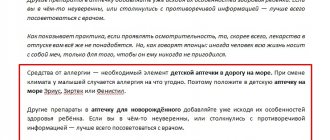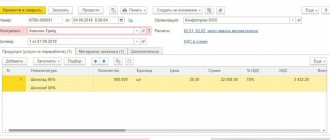Often the concepts of “resident” and “non-resident” are used to control taxation, as well as foreign exchange transactions.
Dear readers! The article talks about typical ways to resolve legal issues, but each case is individual. If you want to find out how to solve your particular problem , contact a consultant:
8 (800) 700 95 53
APPLICATIONS AND CALLS ARE ACCEPTED 24/7 and 7 days a week.
It's fast and FREE !
Separate tax rates are established for each of these groups, which is why it is so important to understand the distinction between the concepts of resident and non-resident of the Russian Federation in 2020.
Basic definitions
| Resident | This is a legal or natural person that is registered in a given country, which is fully subject to national legislation |
| Non-resident | This is a legal, natural person that operates in one country, but is permanently registered and resides in another |
These may also be companies that are not legal entities, created in accordance with the laws of other countries, or foreign diplomatic missions located in the state.
Usually the concept is applied to the rights and obligations of persons in financial and tax legal relations.
The concepts of “resident” and “non-resident” of the Russian Federation in accordance with the tax and currency legislation of the Russian Federation differ.
The reason for this is that tax and currency legislation in Russia are two different areas of legislation.
According to the Tax Code of the Russian Federation, the citizenship of an individual and the tax residence of an individual are in no way related to each other. A Russian citizen may be a tax non-resident of Russia, and a foreign citizen may be a tax resident of the country.
Until 2020, citizens staying abroad for more than a year were recognized as currency non-residents.
But upon entering the Russian Federation, even for a day, they became currency residents. From January 1, 2020, according to the law, all Russian citizens, regardless of the period of stay in another country, are currency residents.
But at the same time, individuals who permanently reside abroad for more than 183 days during the year are exempt from the restrictions of currency legislation and must inform the tax authorities about their accounts in foreign banks. Thus, tax and currency residents have become similar concepts.
Legal entity in the Russian Federation: how to determine its status - resident or non-resident
Russian tax legislation in relation to legal entities in Russia and their tax status often uses the terms “resident” and “non-resident”. Fiscal services put a different meaning into them than most citizens of the Russian Federation who are inexperienced in the intricacies of legislation. We are talking here primarily about differences in the tax burden for these two entities. To correctly calculate taxes and avoid double taxation, it is necessary to establish residency. Therefore, the question of how to determine whether a legal entity is a resident or non-resident in Russia in 2020 has an important practical meaning.
KPP is an additional nine-digit code that legal entities receive from the tax office when registering. This applies to both residents and non-residents of the Russian Federation. Its main purpose is to show the reason why this organization was registered with a certain tax office. A legal entity may have several such checkpoints and they may change over time: for example, when changing the address.
The legislative framework
According to paragraph 2 of Art. 207 of the Tax Code of the Russian Federation, tax residents are considered to be individuals who stay in the Russian Federation for at least 183 days during the year.
A tax non-resident must pay personal income tax in the amount of 30% on all income. And if a foreign citizen is a tax resident in Russia, then his tax rate will be 13%.
The Federal Law “On Currency Regulation and Currency Control” also provides definitions of the concepts “resident” and “non-resident”.
According to Part 1 of Art. 14 of this law, residents have the right to open bank accounts in foreign currency without restrictions, unless otherwise determined by the specified Federal Law.
How to determine whether a legal entity is resident or non-resident
To recognize an individual as a resident or non-resident, one must be guided by Article 207 of the Tax Code, which specifies the time frame by which the status is determined: more than 183 days of the employee’s stay in the territory of the Russian Federation, including short-term treatment and training abroad.
This question is asked by accountants if it is difficult to calculate the number of days a foreign worker stayed in Russia. And besides, at the company’s request, the employee did not want to provide the necessary documents that could confirm this period. For example, difficulties arise when the employee was undergoing treatment abroad or training.
Rights and obligations
When using currency transactions, residents have the following rights and obligations:
- There are no restrictions for opening bank accounts in foreign currency.
- They may conduct some foreign exchange transactions through previously opened bank accounts.
- Carry out currency transactions using accounts that operate outside of Russia.
- Carry out any payments in foreign currency, while agreeing on the conversion rate with a specific bank, and there is no difference in what currency the account is opened.
Non-residents have the following rights:
- Have open foreign currency accounts, as well as conduct transactions in national currency in authorized banks.
- Restrictions on recalculation and transfer of funds to foreign banks have been lifted; transfer currency from your Russian account to a foreign open account without restrictions.
- According to the instructions of the Central Bank, it is allowed to credit securities from special accounts.
Who is a foreign currency non-resident?
Along with the existing tax concept, there is another definition of a non-resident, which follows from the provisions of currency legislation. According to the principles of currency regulation, residents include citizens of the Russian Federation, except for those who have citizenship or a residence permit in another state or have been staying abroad for at least one year, working or studying with an appropriate visa; foreign citizens with a residence permit. Therefore, a non-resident is an entity that does not meet the above requirements.
What will be important here is not the fact of permanent residence, but rather the type of documents presented. For example, when opening an account, a bank employee will a priori consider a person who presents a Russian passport to be a resident. Even if a given client meets the criteria of a non-resident, for example, has a residence permit in another country, it will still be difficult for the bank to determine this without providing additional documents that the client may not show.
Features of the bank's requirements
Non-residents are allowed to open foreign currency accounts in Russian banks, this is indicated in Federal Law-173.
However, not all banks allow such operations, only for those to whom the Central Bank has given special authority. Each time, the list of these banks changes.
In Art. 846 of the Civil Code of the Russian Federation specifies the rules that are used when opening bank accounts for non-residents.
Mandatory documents for conducting currency transactions, as well as opening an account, are identical to those for residents.
To use the services, you must provide the following package of documents:
- Questionnaire.
- Citizen's passport.
- Migration card with a valid date.
- Permission to stay in the country.
- Permission from the Central Bank to open a bank account.
Taxation of income of legal entities (residents and non-residents)
In accordance with Article 246 of the Tax Code of the Russian Federation, foreign organizations operating in the Russian Federation through permanent representative offices and (or) receiving income from sources in the Russian Federation are recognized as income tax payers.
Also read: How to rent land from the city
When providing information and/or advertising services, the buyer of which is a person located in Russia, the proceeds from their sale are subject to VAT in accordance with Russian legislation, regardless of the place of activity of the foreign company.
Transactions subject to currency regulation
According to the latest changes in the rules of the Central Bank, currency regulation operations include:
- Conducting agreements that are carried out between non-residents and residents, as well as during transactions between open accounts of residents.
- Agency agreements for foreign trade and export of goods outside the Russian Federation.
- When buying or selling flammable fuel.
Currency regulation includes transactions that have separate trading amounts:
| Import | 3 million rubles |
| Export | 6 million rubles |
The conversion amount occurs at the rate of the Central Bank at the time of conclusion of the agreement.
Common mistake
Typically, an ordinary person, far from monetary issues, hearing the concepts of “non-residents” and “residents”, believes that the former are foreigners, and the latter are citizens of the country.
So, this is a serious mistake! In reality, the concept of residence has a specific connection with the concept of citizenship, but there are also significant differences. That is, a non-resident is not necessarily a foreigner, and a resident is not always a citizen of the country.
These definitions are given in the legislative acts of each power, and may have established differences for different countries. In Russia, for example, these concepts differ even within the country. Thus, during the execution of currency supervision, some epithets apply, and during tax verification, others apply. These definitions can be transformed by making appropriate changes in the legislative framework. Therefore, to be sure, it is always necessary to read the laws with the final modifications made.
Personal income tax rates for tax authorities
Who becomes a tax resident:
| Residents of Russia who are citizens of the Russian Federation | Unless proven otherwise |
| Non-residents, foreign citizens | Who live in the Russian Federation for more than 183 days |
Even a residence permit cannot provide grounds for obtaining tax resident status. This is an important indicator, because the rate on personal income tax depends on the status of resident or non-resident.
However, there are exceptions that apply to both residents and non-residents; a fixed rate of 13% applies.
Apply if the non-resident is a highly qualified specialist. Residents of the Russian Federation are subject to a 13% rate, which applies to the income of individuals.
In this case, we can assume that the calendar year is the tax period. In this case, a person is included in this category, provided that he stays on the territory of the Russian Federation for 12 months without leaving. It is important to consider that in this case there is no requirement for a calendar year - from January to December.
But it should be taken into account that for those citizens of the Russian Federation who often leave the country for a long time, the tax rate may change noticeably:
| Fixed rate on salaries and other income of residents of the country | At 13% |
| But the tax rate can reach up to 30% | For example, if a resident individual received winnings or other benefits from another source of income |
| If a foreigner is recognized as a resident of the Russian Federation, then a fixed rate applies | But it is necessary to take into account the legislative acts by which a foreigner is determined to be a resident |
Rules that apply to non-residents of Russia:
| The percentage tax rate in rare cases is more profitable for non-residents than for residents of the Russian Federation | This rule applies to those individuals who work under a patent, or are general specialists, and this also applies to citizens of the EAEU. In this procedure, the rate applied is 9% |
| A rate of 15% is charged for non-residents | Which receive some dividends from Russia |
| In other cases the rate applies | At 15% |
Tax residence requires confirmation in order to avoid problems with the law in the event of an audit.
The confirmation entitles you to receive tax relief if an individual needs to pay taxes if he receives income in a foreign country.
But for those who have tax resident status not in one country, but in several, some issues may arise that will need to be resolved.
Who is a resident and non-resident of the Russian Federation?
Citizens living in the country for less than 6 months a year (non-residents) do not have this status; they are forced to pay more taxes at inflated interest rates. It should also be noted that persons who are outside Russia for more than the specified period due to the performance of their duties as a sales representative also fall under this definition.
However, to obtain it, a foreigner only needs to have a regular work or study visa for at least 1 year. Citizens of the Russian Federation simply need to stay in the country for a period specified by law. To calculate the time spent on Russian territory, you can use the stamps in your passport put down by the Russian border service when traveling abroad.
Read more: How long does it take for alcohol to leave the body?










